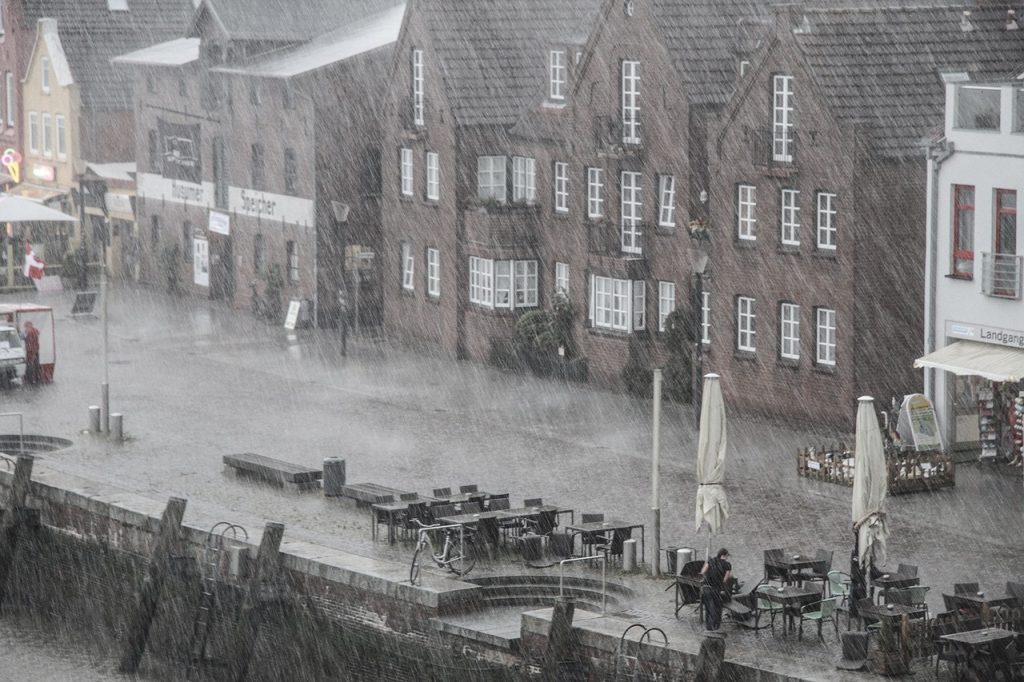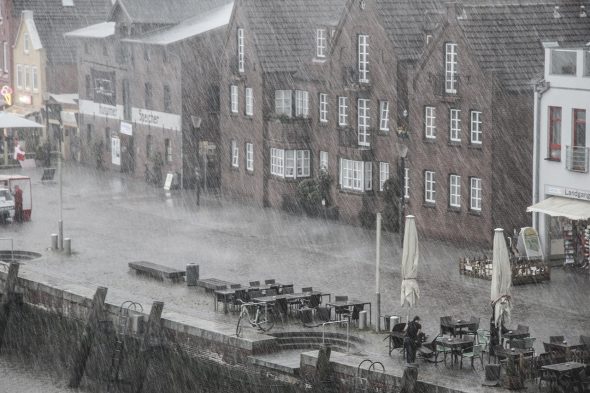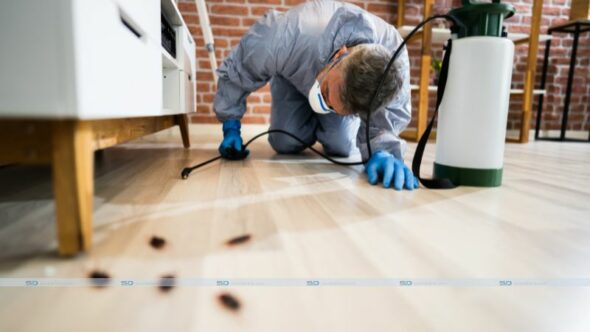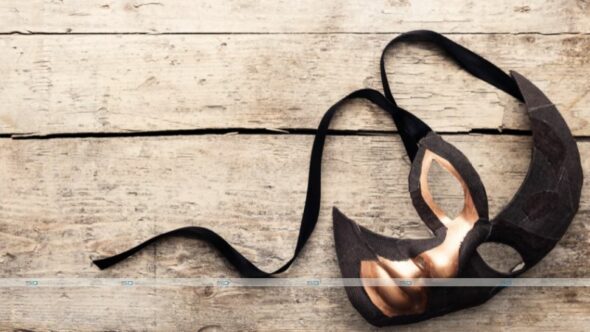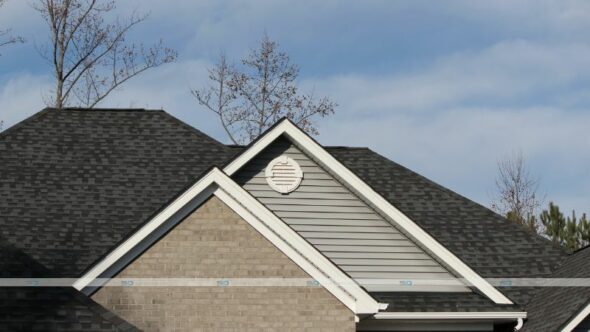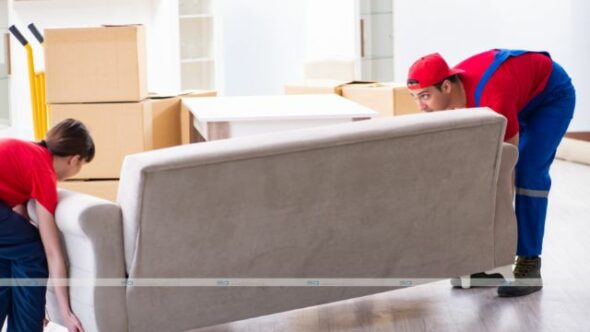When you’re safe and warm inside your house, and the rain is hammering against the outside, it can give you a lovely feeling of security and comfort. There’s something very special about sitting by the fire with a hot drink or cuddling up in bed and listening to the wind whistle around the house. The problem comes the next day when you venture outside and see what damage the storm has done. Storms are just one of the ways that the weather can affect your home, so to protect your house and make sure it continues to protect you, take good care of it when the weather gives it a battering.
Storm damage
Wind, rain, and snow can cause a lot of damage when they become extreme, and the scenes of devastation following hurricanes and typhoons can be truly horrifying. These events are thankfully not common in most areas, but normal storms can be damaging too. After a storm, check your gutters, downpipes, brickwork, and roofing for any damage, blockages or loose tiles. After checking outside, have a look inside for any signs of leaking. If you find a leak, see if you can spot where it’s coming from and what needs to be done to fix it. You may need a storm damage roof repair service when you find one. Keep an eye out for any signs of moisture coming in through a breach in the external walls. It may not be immediately obvious, but if left you could end up with damp and mold problems inside the house. Make sure that your rain is diverted to the the storm sewage drainage or away from your home and install and maintain those seamless rain gutters.
You could also have fallen trees, broken branches and all sorts of miscellaneous debris around the house and yard that will need clearing away. If you know a storm is coming, you can secure or store away any outside furniture or fixtures that could be likely to get blown around by the wind, so hopefully, you’ll not have trash and flower pots strewn around the place. Other people’s trash may well blow into your garden though, so when you’re clearing up make sure you wear gloves and be careful what you’re picking up. You should also go for a Discount Dumpster Rental for all the waste and trash that you pick up.
Extreme temperatures
The best way to deal with very low temperatures is to make sure everything is insulated to stop it freezing. The most common problem with the cold is when water pipes freeze and then burst. This can lead to flooding and expensive repair bills, so make sure all your pipework and water storage units are insulated and keep the temperature in the whole house above freezing. If your pipes have been damaged by the cold, you might need the help of a residential pipe repair service company.
Don’t forget about external water sources which are even more vulnerable to freezing temperatures. Outside taps are the obvious points to be aware of, but if you have a caravan or RV or any other equipment that holds water in its system, they will need draining if possible, plus insulation and possibly heating too. If you need to protect your other items, consider a rv storage facility for your caravan.
Hot weather is usually less damaging, but if you don’t keep your home well-ventilated parts of it can overheat. Wooden flooring, for example, will suffer in extremely hot weather, and may even warp or split. Keep it treated with a good quality wood preservative treatment that is designed for real wood flooring to stop it drying out too much. If you find your candles are melting, it’s safe to say your home is getting too hot! Get some air circulating through windows and doors, use fans, and keep your air conditioning unit well-maintained if you have one. For air conditioning repair and maintenance, contact your air conditioning services provider on your address book.
Extreme temperatures can also lead to problems with pests. Vermin are more likely to look for ways to get into the house when it’s cold which will lead you to need mice control services, and bugs can breed prolifically in hot weather and may cause an infestation if you don’t notice them. Be aware of any signs that pests are setting up home, and use whichever deterrents and pest control products you feel comfortable with to keep them at bay.
Mud, glorious mud
One of the ongoing headaches caused by bad weather is the extra cleaning involved because of the mud that gets tracked into the house. Stopping it at the door is the best way to prevent it from becoming a major chore, so have an area set aside where boots and outdoor clothing can be safely stored. Make sure everyone sticks to the rules about taking their footwear off when they enter the house, and not going outside in their slippers. If you haven’t got room indoors, have a look at the range of outside storage ideas for boots and shoes. Leaving them exposed by the back door isn’t a great option because they will get wet inside and will be very inviting for spiders to explore. A sealed boot cupboard or a boot rack will keep them dry and relatively insect-free. At the entrance, make sure you have a boot scraper and some robust matting for getting the worst of the mud off, and absorbent matting inside to reduce muddy footprints on the flooring. If you have problems because your mats won’t stay still, or they don’t do a good enough job, you could look at recessed mats and grates that actively draw mud and water away. If you do get mud tracked into the house, the good news is that it’s reasonably easy to clean up. Keep a mop to hand or a compact steam cleaner that you can use to run over the floor as soon as it gets dirty, then you will avoid it building up and looking unsightly, and it won’t turn into a major chore.
Pets can’t be relied upon to wipe their paws when they come in, and muddy dogs can make a real mess of your furniture. Use longer stretches of protective matting to soak up the worst of the mud and wet from their paws and use throws on the furniture to keep them free from pawprints. If you have a room in which to isolate the dogs until they’re dry, that’s the best way of keeping the wet dog smell out of the house. Towel them off to get rid of the worst of the wet and dirt, and they should dry off pretty quickly.
Weather conditions can’t be controlled, but if you are aware of the possible effects, you’ll be able to prepare for and deal with whatever Mother Nature has in store for you.

